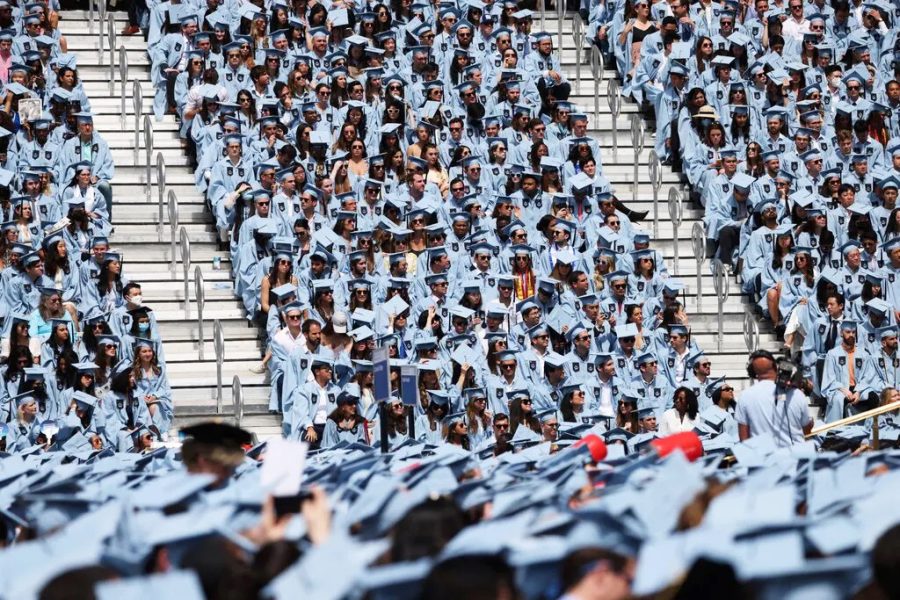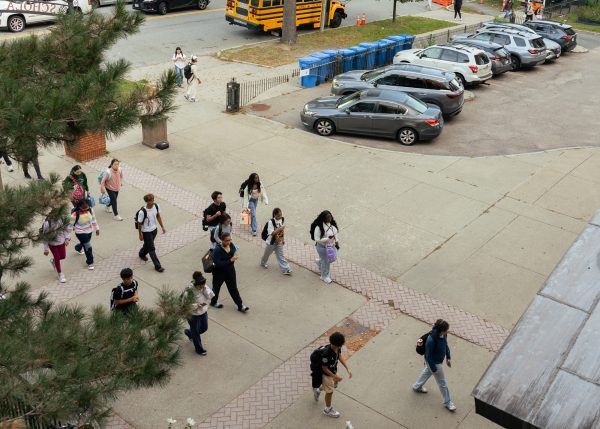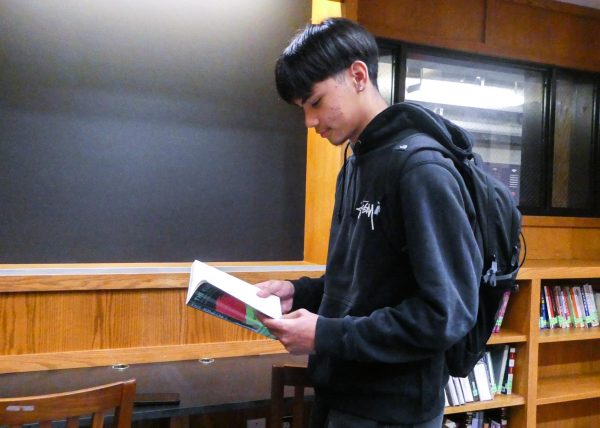Don’t Hate the Player, Hate the Game
The latest version of the U.S. News & World Report’s rankings of the best universities were released just in time, with school back in session and many anxiety-racked high school seniors preparing for college applications.
This year’s report, however, marks the steepest decline in Ivy League institution Columbia University’s ranking history, dropping from No. 2 to No. 18. This drastic drop follows confirmed allegations of the university manipulating data to climb the rankings, posed by one of its own faculty members. The controversy is a mere omen in the higher education world and serves as a powerful reckoning on how college rankings poorly serve students, creating harmful incentives for universities.
Attention fell on Columbia University’s numbers back in February 2022, when mathematics professor Michael Thaddeus questioned the unprecedented rise of the university in the U.S. News college rankings from its original debut in 18th place. A comprehensive investigation conducted by Thaddeus on Columbia’s U.S. News ranking, using various avenues of publicly available information, laid bare the extent of discrepancies and inaccuracy in the school’s self-reported data.
Columbia claims that 100 percent of their full-time faculty members hold terminal degrees — that is, a Ph.D, MFA, MBA or the equivalent in their respective field — which is nearly impossible as numerous faculty members, including Nobel Prize winner Orhan Pamuk, on the staff directory hold a bachelor’s or a master’s degree as their highest level of education.
Even so, to induce universities to only hire faculty for formal qualifications, like holding a terminal degree, is harmful practice. The reality is that many terminal degree programs involve years of research and unpaid work, overlooking more thoughtful qualities in hiring teaching staff.
That is just the tip of the iceberg. The institution also misrepresented figures pertaining to the percentage of undergraduate classes with fewer than 20 students, student to full-time faculty ratios and graduation rates.
Perhaps the largest figure Columbia misstates is their per student expenditure. The university claims to spend 3.1 billion dollars on instruction, working out to over 100,000 dollars spent per student, which is a considerable sum of money. Just to put it into perspective, that amounts to a greater contribution than Harvard University, Yale University and Princeton University combined.
It is important to note that the U.S. News college rankings use a range of factors to measure the overall quality of particular academic and non-academic characteristics offered at universities. One evaluation is peer assessment, which collects surveys on a school’s reputation submitted by deans of other schools, amounting to 20 percent of the ranking. For an agency that claims to evaluate schools holistically, its methodology sure places a tremendous emphasis on prestige.
The biggest problem is not the colleges, but the system. The public must come to terms with how the U.S. News, a profit-driven enterprise, generates rankings based on self-reported data rather than independently verified information. In fact, Thaddeus gathers that college rankings are simply not worth reforming or restoring because the entire system is irredeemable, and rightfully so.
So long as the system remains flawed, colleges will continue to take advantage of it. Justin Paik (I) begs the question, “Columbia may have inflated their numbers, creating fraudulent and potentially illegal data, but what’s to say others haven’t?”
It is not a surprise that over the past century, a string of revelations from prominent colleges, namely Tulane University, Claremont McKenna College, Emory University and George Washington University, have all admitted to falsely reporting numerical data to the U.S. News. By diminishing what universities have to offer into single parameters, it becomes easy to reinforce a race to the bottom and lose sight of what is truly important.
Ms. Alyssa Frank Reichman, director of the William Schawbel College Resource Center, says, “With college costs continuing to rise, it is understandable that families are looking for a way to ensure that the colleges their students pursue are of a high quality. U.S. News in particular capitalizes on this fear, and creates the false sense that there is only a small number of schools that will set students up for success, when this could not be farther from the truth.”
If previous scandals of manipulating undergraduate admissions like “Varsity Blues” scandal didn’t already suggest this, allow the most recent Columbia University incident to remind students that college rankings are mere numbers that do not measure anything objective. They are centered around collective feelings toward prestige and our culture’s fever dreams of status.
Ethan Nguyen (I) echoes, “There are so many different qualities and traits that colleges can offer, and narrowing your choices to just the top ten colleges may result in you missing out on the opportunities available for you.”
College rankings grossly oversimplify what college education really is and project a false vision of the world. While rankings are a composite of characteristics, not all will pertain to everyone. The goal of education should be self-discovery — exploring how one’s distinctive needs align with whatever institution provides for them best.








